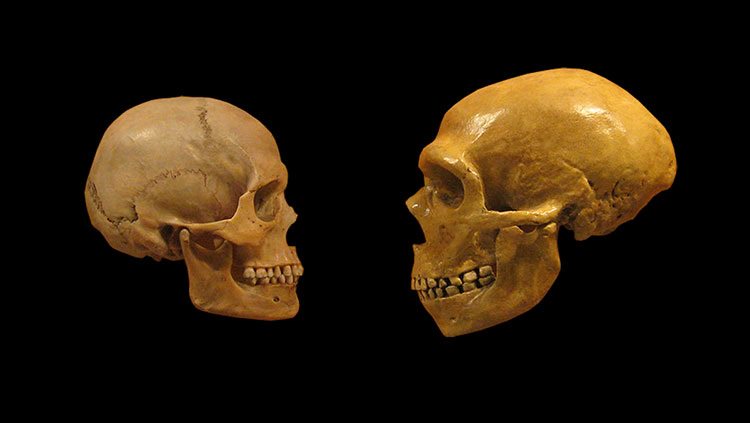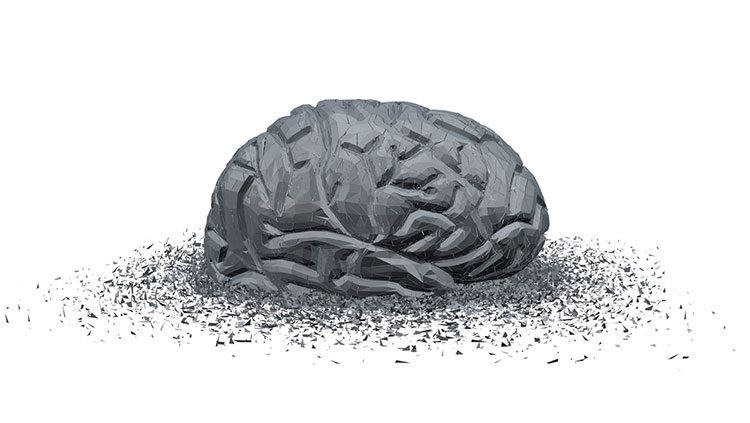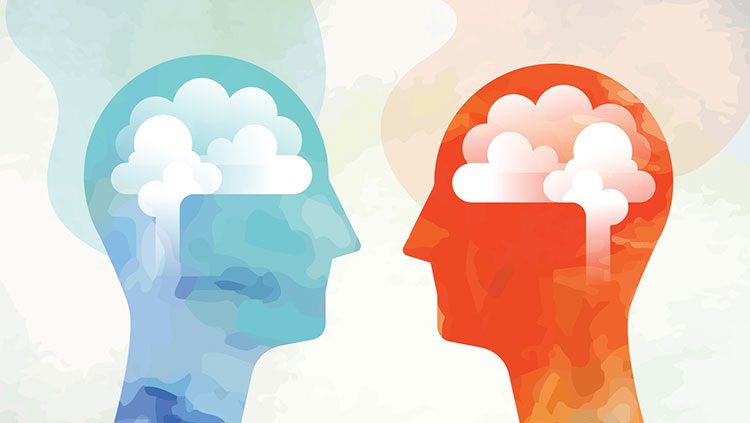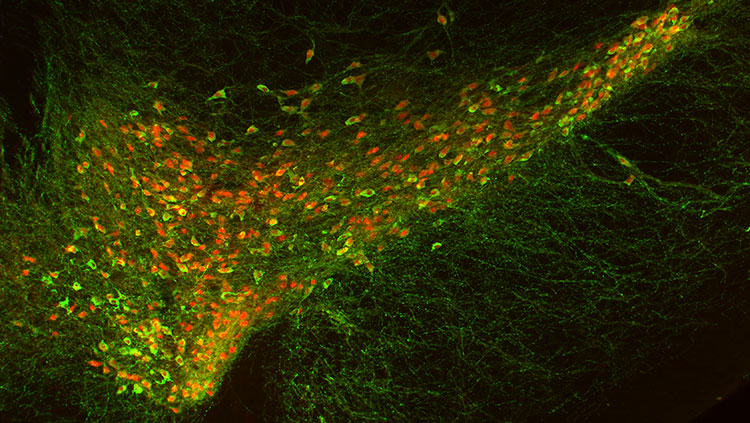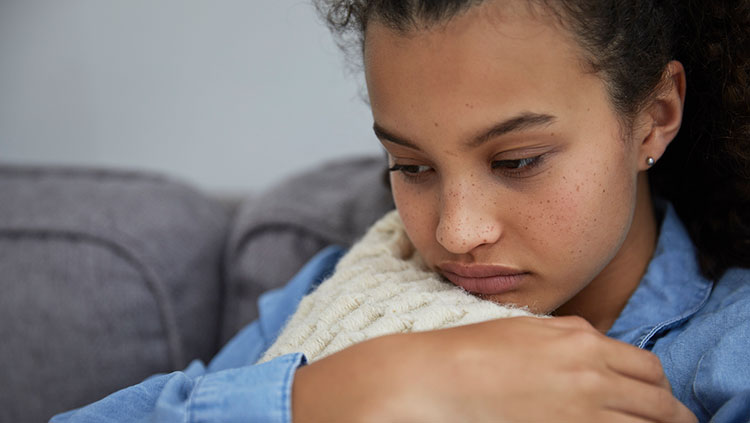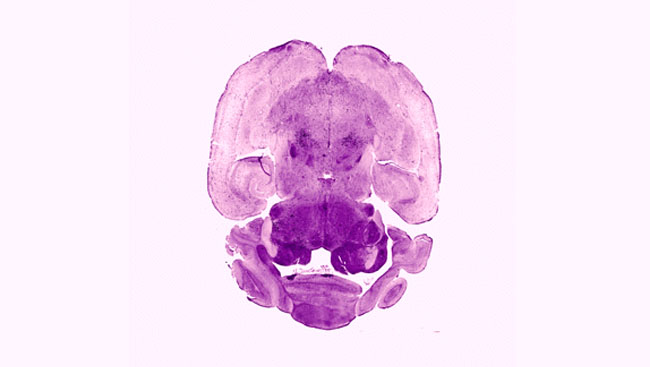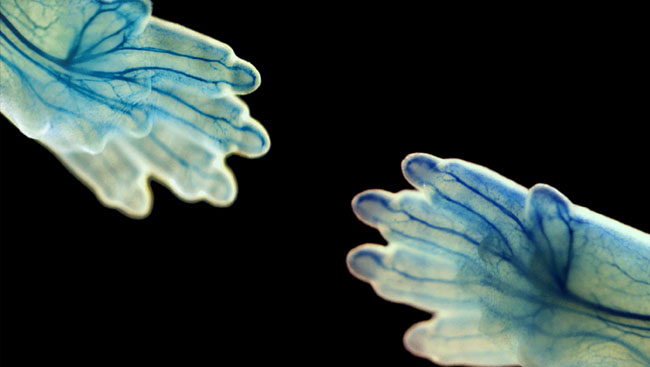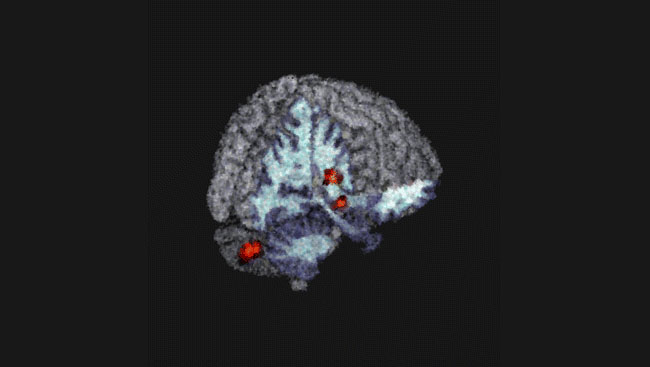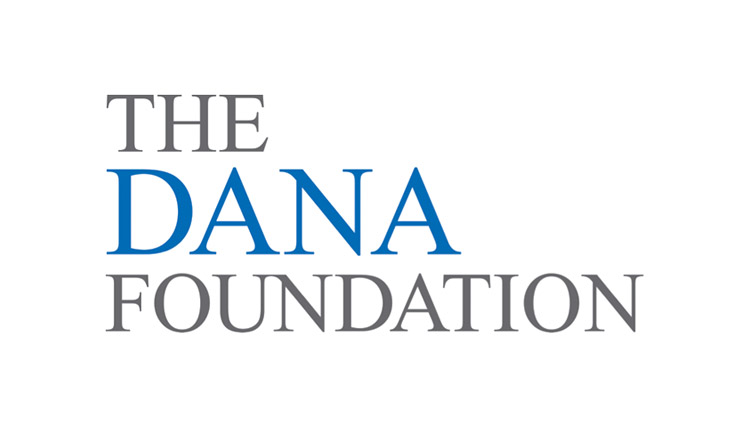ICYMI: Psilocybin May Treat Depression
- Published13 Nov 2020
- Author Alexis Wnuk
- Source BrainFacts/SfN
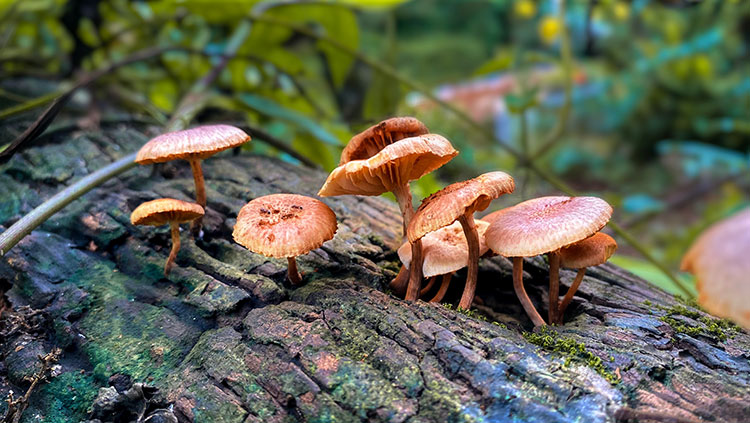
These were the top neuroscience stories for the week of November 2, 2020.
Psilocybin May Treat Depression
The psychoactive compound in magic mushrooms can help people with major depressive disorder, researchers reported November 4 in JAMA Psychiatry. Twenty-four adults with moderate or severe depression received two separate doses of psilocybin during psychotherapy sessions. Half of the participants started the treatment right away; a control group of 11 participants waited several weeks for their treatment to begin. (The study design allowed the researchers to control for any spontaneous improvement in depression symptoms.) The immediate treatment group experienced a quick and profound improvement in depression symptoms, as measured by self-assessments and independent clinicians who didn’t know who had received treatment and who was still waiting. The improvement was four times greater than what’s normally seen in trials of antidepressants, and the effects of the two treatment sessions lasted for a month. The current study’s design didn’t allow the researchers to control for the placebo effect — all the participants knew they were getting psilocybin. Still, this is hard to control for even in studies with a placebo treatment, as most people know when they’re under the influence of drugs like psilocybin.
Big picture: There’s growing support for the use of psychedelic drugs like psilocybin and LSD for mental health disorders. Last week, Oregon legalized psilocybin for medicinal use, and voters in Washington, D.C., approved a measure to decriminalize psychedelic mushrooms.
Read more: Rigorous Study Backs A Psychedelic Treatment For Major Depression (NPR)
Why Your Favorite Songs Give You Chills
Listening to your favorite songs can send shivers down your spine. Now, scientists are closer to understanding what’s going in your brain when that happens. Writing in Frontiers in Neuroscience on November 3, scientists identified the flurry of electrical activity in the brain underlying musical chills. They used EEG to record the brain activity of 18 people while they listened to their favorite chill-inducing songs. When they experienced chills, a specific brain wave called theta waves increased in the orbitofrontal cortex, a region just above the eyes involved in processing emotions and rewards. Theta waves decreased in the supplementary motor area, an area involved in movement and reward.
Related: Why Music Can Give You Goosebumps
Read more: Brain Study Pinpoints Why Music Can Literally Give You the Chills (Inverse)
CONTENT PROVIDED BY
BrainFacts/SfN
Also In Neuroscience in the News
Trending
Popular articles on BrainFacts.org



